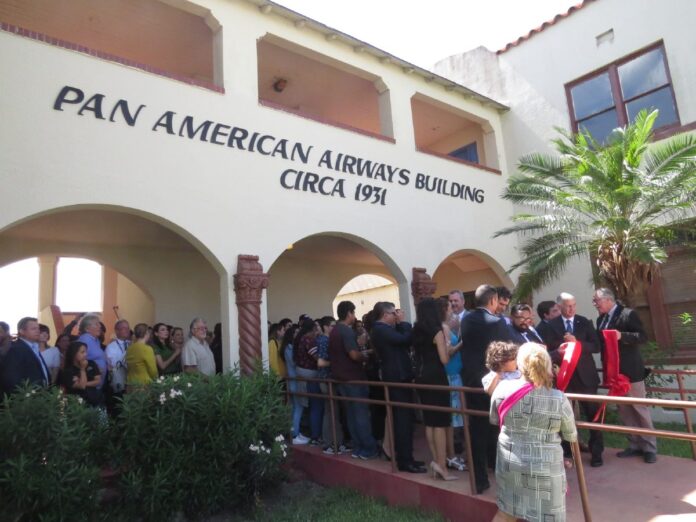Expanding Frontiers (EXP), a commercial space and energy industry incubator launched in Brownsville in 2019, has been tapped for a $50,000 grant from the U.S. Department of Energy.
Awarded through DOE’s Energy Prize for Innovation Clusters (EPIC) program, the grant will be used to support EXP’s Rockets & Rigs program, which brings together the energy and commercial space industries to identify problems common to both and then launches start-up companies to address those problems.
Fredrick Jenet, EXP founder and executive director and former associate professor in the University of Texas Rio Grande Valley Department of Physics and Astronomy, said the EPIC grant will go toward promoting “entrepreneurs at the boundary of space and energy,” most of them local students and veterans.
“The core team, people from industry, government and academia, developed this model where we comb technology in different industries,” he said. “We then develop what we call these hack-a-thons where we get groups together to look through these technologies and then put together initial business plans. They still need a lot of work but at least they have the eyes of experts to look at them.
“We take those business plans and we work with our entrepreneurs to move those forward. In EXP there are two companies that are moving forward now with these ideas and there will probably be more as time goes on. That’s where we are. The core team is in the process of organizing its next event, which is basically going to be looking at the state of technology across space and oil and gas.”
Jenet said Rockets & Rigs as an “industry, government, academic think tank” that first convened in late 2016 and is now under EXP’s wing. While juxtaposing the oil and gas industry with the commercial space industry might sound odd to some people, the two share quite a lot in terms of challenges, he said.
“If you take a look at oil and gas, especially in exploration, you’ve got a platform that’s out in the ocean,” Jenet said. “You have a small group of people working in a challenging environment remotely away from all civilization. Look at the space station. Look at the planned lunar environment.”
It’s not unusual, in fact, for engineers to go back and forth between energy and aerospace, he said.
“The talent moves between the two industries because it’s a similar skill set that’s needed,” Jenet said. “I got a degree in astrophysics. When I finished my Ph.D I worked at Schlumberger oil and gas company.”
EXP was one of 20 incubators/accelerators around the country to win the EPIC grant through DOE’s Office of Technology Transitions. A second phase of the program will make more money available.
One of the two companies already established under EXP is Permittivity, whose co-founder Keeisi Caballero put together the grant-writing team for the first EPIC prize. Permittivity won first place in the first Rockets & Rigs hack-a-thon and recently won the recent StartUp Texas pitch competition, and is using licensed NASA technology to develop an industrial leak detection system.
It was Caballero’s first grant application, never easy because it’s usually so competitive, but she won.
“That was pretty great,” she said.
Caballero said that although she wants to refine her grant-writing skills that’s hardly her sole focus, since she’s also an entrepreneur. That said, EXP will definitely apply for the second round of EPIC funding when it’s time, she said.
OTT Director and Chief Commercialization Officer Conner Prochaska said in a statement that the inaugural EPIC prize is “designed to build local support for innovation and energize new conversations around promising energy technologies.”
“By supporting the greatest possible return on our (research and development) investment, we are driving outcomes that enhance our competitiveness and national security,” he said. “We are delighted to highlight some of the impactful work happening in communities across the country.”




